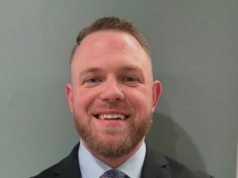A report released last week by the U.S. Department of Justice shows that more than 12 percent of the youths who are in state jails and prisons in this country say they were sexually abused during 2008.
One prison-rape watchdog group called the report “shocking.” And some of the worst facilities, according to the Bureau of Justice Statistics are in, you guessed it, Texas
.
Two Texas facilities rated among the top five for rates of sexual abuse against young inmates. Corsicana Residential Treatment Center was second highest with a 32.4 percent rate of abuse and Victory Field Correctional Academy in Vernon came in third with 24.6 percent of the residents reporting sexual abuse.
More than 9,000 youths were interviewed in all 50 states. Almost all (80 percent) of those who said they’d been abused reported that the assaults were committed by facilities staffers, and a large number reported multiple attacks. Homosexual youths reported being sexually abused by other inmates almost 10 times as often as heterosexuals.
The report marks the first time such statistics have been gathered in this country —the result of a mandate under the National Prison Rape Elimination Act passed by Congress in 2003. The act requires states to keep records and annually report to Congress on all cases of sexual violence, abuse and harassment in their prisons.
The legislation was passed after intense lobbying by such groups as Stop Prison Rape (now called Just Detention International) and with the help of a very courageous North Texas woman, Marilyn Shirley of Dallas, a former prisoner at the Carswell Federal Medical Center for women, who was brutally raped by a guard there in 2000. (He is now serving 12 years in a federal prison.)
Shirley’s story was reported by Fort Worth Weekly. Because she was willing to allow her name to be made public in order to give other abused prisoners the courage to speak out, she soon became the poster child for prison rape victims around the country, winding up in Washington D.C. to testify before Congress as the bill was being debated. It passed, and much of the credit was given to Shirley as well as to the stories of the ongoing sexual abuses at Carswell that have been reported by this paper.
Last June, a bipartisan commission set up by the act to insure that the states were carrying out their mandates, issued its first comprehensive report on sexual violence in the nation’s prisons. According to Just Detention, the commission found that, in spite of the act, “many corrections facilities do a poor job of preventing, identifying, and responding to sexual abuse” of those in custody, emphasizing that sexual abuse is especially damaging to young inmates. Many refuse to report the abuse for fear of not being believed or that the abuse will only become worse.
The study released last week grew out of the commission’s findings. The commission has also set out proposed standards designed to help prevent sexual abuse of inmates; under the act, they must be codified by the U. S. attorney general by June of this year. Just Detention helped develop those standards.
“The attorney general needs to issue comprehensive, zero-tolerance standards, and he can’t do so a moment too soon,” said Lovisa Stannow, executive director of Just Detention International. “Every day without them is another day in which incarcerated children are getting raped.”
Especially in Texas.
The BJS report, “Sexual Victimization in Juvenile Facilities Reported by Youth, 2008-09” can be found online at http://bjs.ojp.usdoj.gov/index.cfm?ty=pbdetail&iid=2113.











